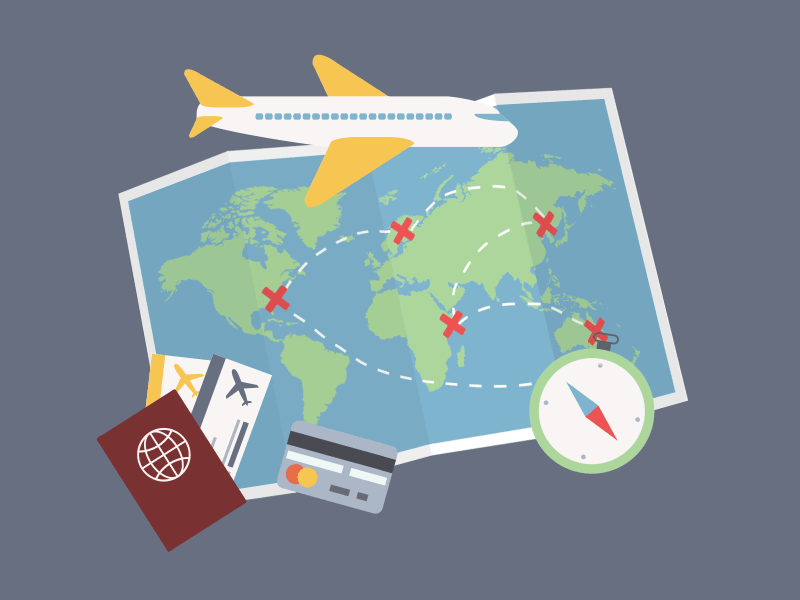🏝️ Online Travel: AI is Coming
AI agents could bring the ultimate personalization
Welcome to the Tuesday edition of How They Make Money.
Over 120,000 subscribers turn to us for business and investment insights.
In case you missed it:
Travel is on the cusp of a new era of tech disruption.
The global online travel market could reach $1.5 trillion by 2030, growing at a compound annual growth rate of nearly 13%.1
By now, you’ve probably heard of one of the prominent use cases for artificial intelligence: AI agents. Of all the industries historically reliant on agents, tourism is ripe for AI disruption, with companies leveraging first-party data for hyper-personalized recommendations.
Online Travel Agencies (OTAs) have already revolutionized how we book trips. AI agents are the next frontier, providing the curation and customer service previously impossible with a simple search bar.
AI could disrupt the entire discovery model, where optimizing for LLMs like Gemini or Travel GPTs becomes the new SEO.
Glenn Fogel, CEO of Booking Holdings, envisions a future where AI-powered "connected trips" seamlessly orchestrate every aspect of a traveler's journey, from recommendations to real-time problem-solving.
It's crucial to understand the key players and the metrics that define their success:
Gross Bookings: The total value of travel services booked through a platform, revealing its overall reach and influence.
Nights Booked: The number of nights booked for accommodations is a vital indicator of a platform's popularity.
Average Daily Rate (ADR): The average price per night, reflecting pricing power and market trends.
Revenue per Available Room (RevPAR): A key performance metric for hotels, combining occupancy rates and ADR to measure overall revenue.
Customer Acquisition Cost (CAC): The average cost of acquiring a new customer, crucial for understanding marketing efficiency and profitability.
Let’s visualize the largest travel companies and their latest quarter, from OTAs to short-term rentals and traditional hotel chains.
Today at a glance:
🛫 Booking Holdings: Connected Trips.
🛖 Airbnb: Mobile Surge.
✈️ Expedia: Choppy Waters.
🧳 Marriott: Search with AI.
🏨 Hilton: Personalization Push.
1. 🛫 Booking Holdings: Connected Trips.
Booking Holdings has transitioned from an Agency to a Merchant model in the past few years.
Agency model: The customer pays the final price to the hotel (either at the time of the booking or at the check-in). After the check-out month, the hotel pays the agreed commission to the OTA.
Merchant model: The customer pays the final price to the OTA (not to the hotel). After the check-in date, the OTA pays the net price (final price less agreed commission) to the hotel.
Gross Bookings: $43.5 billion (+10% Y/Y).
Room Nights Booked: 297 million (+9% Y/Y).
Revenue: $4.4 billion (+17% Y/Y), a $160 million beat.
Adjusted EPS: $20.39 (vs. $14.06 expected)
What to make of all this?
Booking Holdings exceeded expectations in Q1 FY24—robust international travel demand, particularly in Europe, more than offset the moderation in domestic US travel.
🤖 Connected trips: Single bookings that include multiple travel elements (flights, accommodations, car rentals, and so on) grew more than 50% year-over-year from a small base. They now make up a high single-digit percentage of transactions. CEO Glenn Fogel envisions AI enhancing these trips, but he warned it would take time.
🌍 Europe's Revival: The performance above expectations in European markets signals a continued appetite for travel despite economic concerns.
🏡 Alternative Surge: Vacation rentals and apartments continue to outpace traditional hotels, reflecting evolving traveler preferences. Alternative accommodation listings grew 11% year-over-year to 7.4 million at the end of Q1. For context, Airbnb had 7.7 million active listings at the end of 2023, up 18% year-over-year.
📈 Profitability and Buybacks: Operating margin expanded, primarily thanks to lower marketing spend. The company continues to buy back shares aggressively ($1.9 billion during the quarter, compared to $2.2 billion in the previous year).
🚧 Challenges Ahead: Despite a strong Q1, Booking issued softer guidance for Q2, citing geopolitical tensions in the Middle East. In addition, increasing competition remains a concern.
Booking Holdings is a dominant force in online travel, bolstered by its strong international presence, diverse portfolio of brands, and Genius loyalty program. Connected trips offer a clear path to upselling customers, but it’s unclear whether AI will be a growth tailwind or a competitive headwind. The company's ability to adapt to changing market dynamics is critical, as with alternative accommodations, a category where Airbnb remains the leader.
2. 🛖 Airbnb: Mobile Surge.
While travel has become commoditized, Airbnb thrives through its unique stays and one-of-a-kind activities. Its business model focused on hosts makes it fundamentally different.





